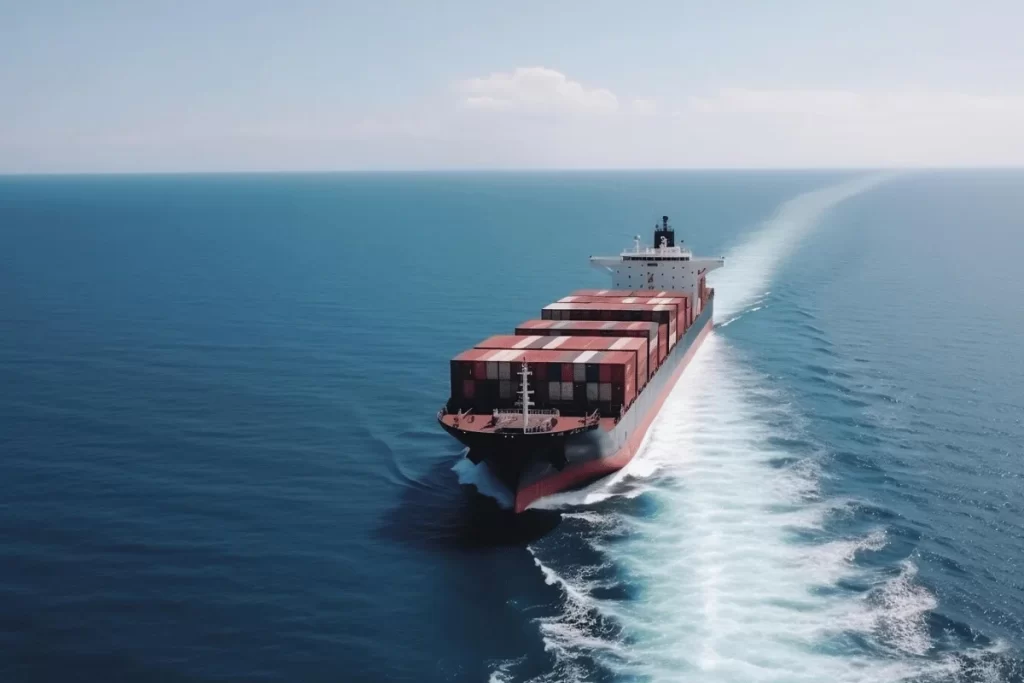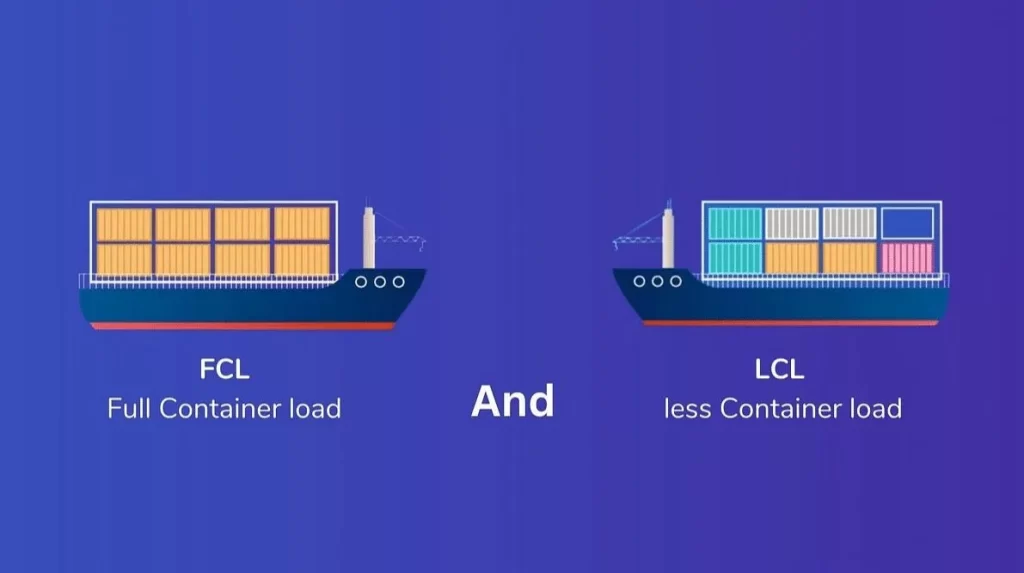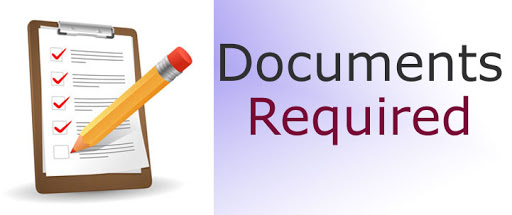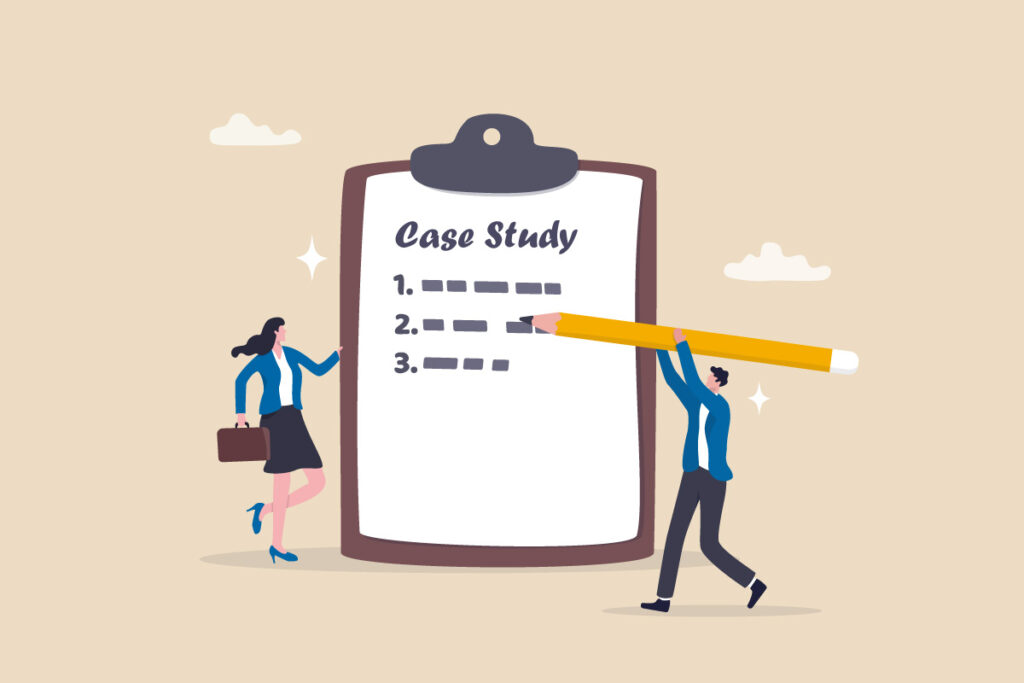- By TOP CHINA FREIGHT
- September 22, 2025
- Sea Freight, Shipping
Table of Contents
Sea freight from China to Nigeria is a vital solution for businesses shipping goods internationally, yet the process can be challenging. Companies often encounter difficulties with cost control, transit times, and customs compliance. Fortunately, understanding the nuances of sea freight from China to Nigeria can simplify shipping, reduce delays, and optimize your supply chain. This guide provides detailed insights, practical tips, and expert strategies to streamline operations effectively.

What Factors Affect Sea Freight from China to Nigeria?
Several factors influence the cost, efficiency, and reliability of sea freight from China to Nigeria:
Cargo type:
FCL (Full Container Load) is cost-efficient for large shipments; LCL (Less than Container Load) suits smaller volumes but has higher per-unit costs.
Shipping routes & ports:
Major Chinese ports (Shanghai, Shenzhen, Ningbo) connect to Nigerian ports (Lagos/Apapa, Port Harcourt, Tin Can Island).
Cost fluctuations:
Fuel prices, seasonal demand, and freight capacity can affect pricing.
Customs & documentation:
Compliance with Nigerian regulations, proper packaging, and accurate documents (bills of lading, invoices) are essential.
Collaborating with experienced freight forwarders helps ensure timely deliveries while minimizing costs and risks.
What Are the Cost Components of Sea Freight from China to Nigeria?

Understanding pricing is vital for budget management. Sea freight costs typically include the following components:
| Cost Component | Description |
|---|---|
| Freight Rate | Charged per container (FCL) or per cubic meter/ton (LCL) |
| Bunker Adjustment Factor (BAF) | Fuel surcharge applied by carriers |
| Terminal Handling Charges (THC) | Fees for loading/unloading at port terminals |
| Documentation Fees | Costs for bills of lading, certificates, and customs documents |
| Customs Duties & Taxes | Nigerian import duties based on cargo type and value |
| Insurance | Optional but recommended for high-value goods |
FCL vs LCL: Which Is Better for Shipping to Nigeria?

Choosing the right shipping method depends on cargo size, budget, and urgency.
| Shipping Method | Cost Efficiency | Transit Time | Pros | Cons |
|---|---|---|---|---|
| FCL (Full Container Load) | High for large shipments | Faster (direct) | Lower per-unit cost, secure cargo | Requires large volume, upfront cost |
| LCL (Less than Container Load) | Better for small shipments | Slightly slower | Flexible, lower initial cost | Higher per-unit cost, multiple handling points |
For businesses shipping large volumes, FCL is generally more economical and faster. However, LCL suits small businesses or startups that cannot fill a full container.
How to Prepare Documentation for Nigerian Customs

Efficient documentation is critical to avoid delays and fines. Key documents for sea freight from China to Nigeria include:
| Document | Purpose |
|---|---|
| Bill of Lading | Legal document confirming cargo shipment |
| Commercial Invoice | Lists goods, quantity, and price |
| Packing List | Details of items in each package |
| Certificate of Origin | Confirms the country of manufacture |
| Import Duty Payment Proof | Required for customs clearance |
| Insurance Certificate | Verifies cargo coverage |
Can You Reduce Costs on Sea Freight from China to Nigeria?
Combining multiple small shipments into one container lowers per-unit costs.
Securing space in advance avoids peak season surcharges.
Choosing less congested ports may reduce terminal handling fees.
Experienced forwarders can access discounted rates.
Minimizing volume reduces LCL costs and prevents damage.
What Are the Pros and Cons of Sea Freight vs Other Options?
Comparing sea freight with air and rail transport helps determine the best choice for your business.
| Mode | Cost | Transit Time | Pros | Cons |
|---|---|---|---|---|
| Sea Freight | Low | 20–35 days | Economical for large shipments, reliable for bulk goods | Slower than air |
| Air Freight | High | 3–7 days | Fastest delivery, reduced inventory risk | Expensive, limited capacity |
| Rail Freight | Moderate | 25–30 days | Balanced cost and speed, eco-friendly | Limited routes to Nigeria, infrastructure constraints |
Sea freight is ideal for bulk goods where cost efficiency outweighs speed, while air freight suits urgent shipments. Rail is less common for China–Nigeria trade due to connectivity limitations.
How to Track Sea Freight from China to Nigeria?
Modern freight tracking provides transparency and reduces uncertainty. Most carriers and freight forwarders offer:
- Online tracking portals with real-time updates
- SMS or email notifications on shipment status
- Estimated arrival time at destination port
- Alerts for customs clearance or delays
Additionally, freight forwarders may provide supply chain management dashboards to track multiple shipments simultaneously, enabling better planning for inventory and distribution.
Case Study: A Successful Shipment from China to Lagos

A mid-sized electronics company in Lagos needed to import 50 tons of smartphones from Shenzhen. They opted for FCL shipping to maximize cost efficiency and minimize handling risks. The freight forwarder:
- Consolidated shipments for reduced cost
- Arranged insurance and accurate customs documentation
- Provided real-time tracking updates
Result: The shipment arrived in 24 days at Apapa Port, with no damage or customs delays. By planning ahead and leveraging a reliable forwarder, the company reduced total shipping costs by 15% compared to previous LCL shipments.
What Are the Common Challenges in Sea Freight to Nigeria?
Shipping from China to Nigeria comes with specific challenges:
- Port congestion: Nigerian ports, especially Lagos, can experience delays, increasing waiting times.
- Weather disruption: Rainy season and rough seas can affect schedules and handling.
- Cost fluctuations: Exchange rates and fuel surcharges may impact overall shipping costs.
- Customs inspections: Electronics, chemicals, and textiles may face stricter scrutiny.
- Regulatory compliance: Accurate documentation and adherence to Nigerian import rules are essential.
Mitigation strategies:
- Plan shipments well in advance to avoid peak congestion.
- Maintain transparent communication with freight forwarders.
- Consider alternative ports when necessary.
- Use pre-clearance procedures to submit documents before cargo arrival.
Conclusion
Sea freight from China to Nigeria remains the most economical option for bulk shipments. By understanding cost components, selecting appropriate shipping methods, preparing accurate documentation, and leveraging experienced freight forwarders, businesses can streamline operations, reduce transit times, and avoid unnecessary expenses. Planning, strategic port selection, and tracking systems further optimize the shipping process.
Need a Shipping Quote?
If you want expert guidance and peace of mind, our team is ready to assist.
TJ China Freight offers tailored solutions to help businesses of all sizes ship more reliably from China.

FAQ
Q1:What is the cheapest way to ship from China to Nigeria?
Sea freight is the most cost-effective, with FCL for large shipments and LCL for smaller volumes.
Q2:How do I choose between FCL and LCL shipments?
Use FCL for large volumes and secure cargo; LCL suits smaller shipments but may be slower and costlier per unit.
Q3:What Nigerian ports receive shipments from China?
Main ports include Lagos (Apapa), Tin Can Island, and Port Harcourt. Port choice affects cost and transit time.
Q4:How can I avoid customs delays in Nigeria?
Submit accurate documents, pay duties on time, and comply with regulations; freight forwarders can assist.
Q5:Can sea freight shipments be insured?
Yes, insurance protects against loss, theft, or damage, especially for high-value goods.
